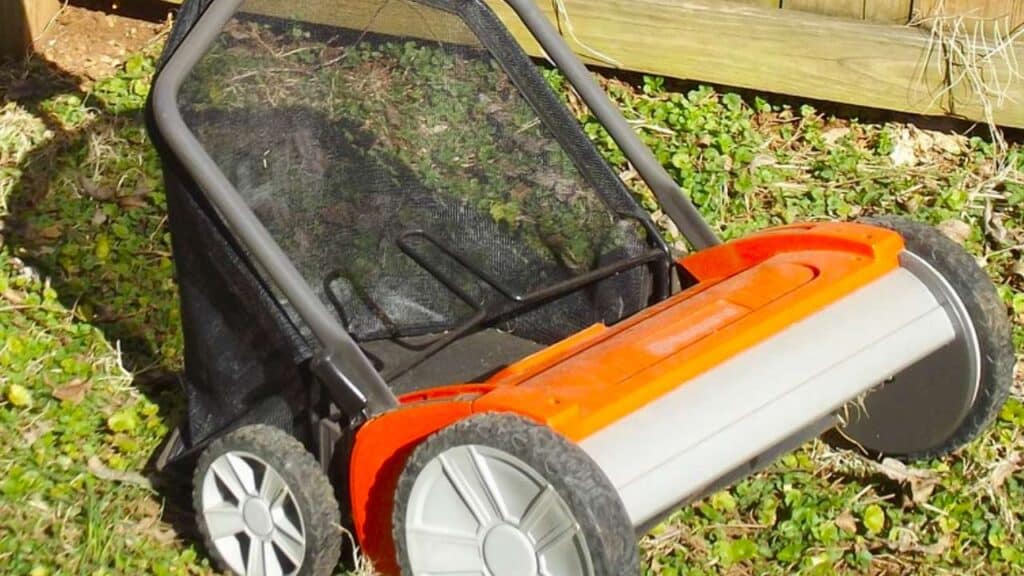Reel mowers, known for their simplicity and eco-friendliness, have become a popular choice for homeowners seeking a quiet, efficient way to maintain their lawns. Unlike gas-powered mowers, reel mowers operate without fuel, oil, or electricity, offering a greener alternative. But how do they fare on uneven terrain, specifically hills? This article delves into the usability of reel mowers on slopes and provides tips for achieving the best results.
Understanding Reel Mowers

Reel mowers consist of a set of blades arranged in a cylinder that spins as the mower is pushed forward. This design allows for a precise cut, making them ideal for small to medium-sized, flat yards. Their operation is straightforward: as you push, the blades spin, slicing through grass with ease. The absence of a motor means reel mowers are significantly quieter and more environmentally friendly than their gas-powered counterparts.
Advantages of Reel Mowers
- Eco-friendly: Reel mowers don’t emit pollutants since they don’t use gasoline or oil.
- Low maintenance: With fewer moving parts, reel mowers require less upkeep.
- Exercise opportunity: Pushing a reel mower provides a good physical workout.
- Quiet operation: Reel mowers are much quieter, making them neighbor-friendly.
Challenges of Mowing Hills with Reel Mowers
Reel mowers are inherently designed for flatter terrains. The effort required to push them increases with the steepness of the hill. Here are a few considerations when using reel mowers on slopes:
Physical Effort: Pushing a reel mower uphill requires more strength and stamina compared to level ground.
Maneuverability: While reel mowers are generally more maneuverable than powered mowers, navigating them on steep inclines can still be challenging.
Grass Cutting Efficiency: The efficiency of cutting grass evenly might decrease on uneven or sloped areas.
Tips for Using Reel Mowers on Hills
Choose the Right Model: Opt for a reel mower with large rear wheels. This design enhances stability and makes it easier to push on uneven terrain.
Mow at the Right Time: Grass should be dry and not too tall. Wet or tall grass can make pushing the mower more difficult.
Adjust Your Mowing Pattern: Instead of mowing up and down the hill, mow across the slope. This method reduces the effort required to push the mower uphill.
Maintain Sharp Blades: Sharp blades are crucial for efficiently cutting grass on any terrain. They ensure a clean cut, even on slopes.
Take Breaks: Don’t hesitate to take breaks, especially when mowing larger hills. This helps prevent fatigue and ensures a more consistent mowing pattern.
Are Reel Mowers Suitable for Your Hill?
The suitability of reel mowers for hills depends on several factors, including the steepness of the hill, the size of the lawn, and the physical condition of the user. For gentle to moderate slopes, a reel mower with appropriate features can be a viable option. However, for steep hills, alternative mowing solutions might be necessary.
Pros and Cons of Using Reel Mowers on Slopes
Pros:
- Eco-friendly and quiet operation.
- Provides a healthy physical workout.
- Better maneuverability with certain models.
Cons:
- Requires significant physical effort on steep slopes.
- May struggle with uneven cutting on highly uneven terrain.
- Not suitable for very large or steep hills.
Conclusion
Reel mowers offer a sustainable, quiet, and low-maintenance option for lawn care. While they excel on flat and moderately uneven terrain, their performance on steep hills is dependent on the physical ability of the user and the specific model of the mower. With the right approach and equipment, using a reel mower on a slope can be both feasible and rewarding, providing an excellent exercise opportunity while caring for your lawn and the environment.
For those with hillier terrains looking for alternative eco-friendly lawn care options, exploring electric lawn mowers or battery-powered units might provide the perfect balance between convenience and sustainability.

